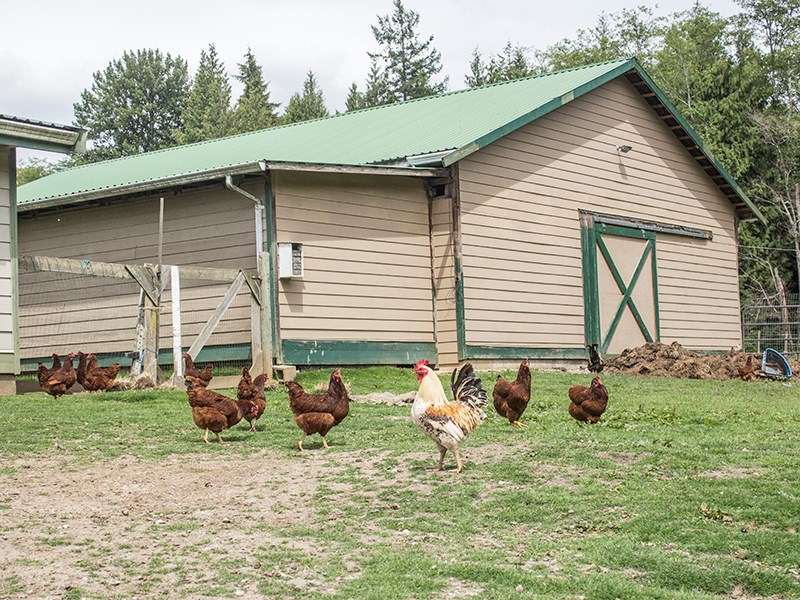Work is underway to establish a program that will provide new and existing farmers and market gardeners with affordable access to training.
City of Powell River manager of economic development Scott Randolph announced Friday, April 7, that the city is working with Vancouver Island University, School District 47, Community Futures Powell River and Powell River Farmers’ Agricultural Institute to establish a steering committee for a new agriculture program.
The city received $100,000 from the BC Rural Dividends program for development of Powell River Sustainable Agriculture Training and Development Program.
“This is about supporting growth and stability of the sector,” said Randolph. “We still need to nail down the priorities and we don’t have preconceived notions, but we do have a general idea of the areas that need work.”
The grant, which the city had applied for last fall while it was considering developing an incubator farm, will go toward development of the new training program, said Randolph.
He added that he has had the opportunity to work with local farmers to address some of their concerns after a number of them objected to the initial plan for the incubator farm.
“We all want the same thing,” said Randolph. “We’ve solved whatever differences we had previously and we’re moving forward with a plan.”
Last December, local farmers told the city they did not support the idea of developing an incubator farm that would create more supply of agricultural products locally, but did not address developing local demand or distribution.
Powell River Farmers’ Agricultural Institute president Alan Rebane said a training program could have a big impact on local agriculture and potentially expand the sale of local agricultural products, which farmers so far have been limited to selling at weekend markets and to the local wholesale market.
“The key thing is our farmers in Powell River all want to go to the market and to sell to the public at a retail price,” said Rebane.
Rebane explained that it would be a more stable model for the production of local vegetables and produce if farmers established contracts with larger institutions in the region to provide greater amounts of local food, but at slightly less of a cost.
Randolph said he envisions the development of an agriculture training centre built on the land Sino Bright School had planned to purchase, adjacent to Brooks Secondary School. He added that his office is still working with Sino Bright owners to find another suitable location for the international school.
Rebane said he has been working to bring the region’s farmers together. In addition to helping established farmers, another aspect of the program will be educational, for high school and college students interested in learning more about horticulture.
The program will look at the development of greenhouses next to Brooks that can provide agricultural classrooms and a potential food source for the school’s lunch and culinary arts program.
“It will excel us in Powell River so we can supply our own food,” said Rebane.
Vancouver Island University Powell River campus administrator Greg Cran said the program would encourage small business growth in the region through the development of farms.
Randolph said the agriculture training program is different than the incubator farm, which had focused on increasing the number of farmers locally by leasing small plots of city land at low cost.
He said he expects the new steering committee to complete its plan by September in the hopes it can be ready soon after that to apply for infrastructure development money.



